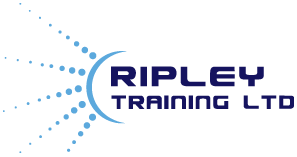Neuro-Linguistic Programming describes the process of how we perceive the outside world or external influences and how we communicate this perception through the language we use. In the workplace NLP can be used as a tool to completely change individuals and hugely increase productivity.
By understanding the ways in which an individual or team interprets the world around them, you can change the way they think, speak and behave towards it. NLP aims to reverse negative attitudes and habits in the workplace to give individuals control over how they react and feel towards future events. So, how can you use NLP to increase the productivity of your team?
1. Set Objectives
The simplest way of implementing a form of NLP in your work environment is to make sure everyone is working towards goals. By setting objectives you are giving your team a direction and something to work for. If employees feel they are expected to achieve these firm objectives they will naturally work harder to make sure they do. They will also automatically be taking more responsibility over their role and the work they do.
This increases productivity on an individual level. Incentives for successfully achieving objectives can also be specified in order to motivate staff to succeed and thrive in the work environment.
2. Boost Staff Morale
NLP is a great way to make employees more engaged and content in the workplace and NLP training is a valuable investment. Committed and engaged employees will perform better than other employees in the business – what are you doing to maintain commitment and engagement in your business? Learning NLP techniques through tailored training courses and coaching will enable team members to reach high levels of performance by over coming barriers in the workplace.
Staff morale is an ongoing factor that a team leader or manager considers. Treating employees with respect, listening to their ideas and making them feel included on a daily basis will keep their self-esteem and confidence high.
3. Better Communication
Internal communications and client relationships are vital for a productive and efficient working environment. Making people aware of how they come across when interacting with others is a key aspect of using NLP to improve communication. NLP will help to identify adverse behaviours such as body language. Body language such as avoiding eye contact or slouching shoulders is generally a subconscious behaviour.
Once the negative behaviour has been recognised, the individual can work to change and improve. As the individual becomes more self-aware, they also become more aware of other people. Effective communication requires an understanding to others’ thought processes as well as an awareness of yourself. See yourself in the way that you would like others to see you.
4. Learning and Development
NLP is all about bringing together an individual’s innermost skills and highlighting their hidden, concealed ability. NLP unlocks the potential for a wealth of knowledge. Employees will be eager to learn and advance in their own professional development. This enables employees to take control of their own career and requires them to be proactive about doing so. A proactive, engaged and progressing team will be highly motivated and productive.
NLP helps the individual to improve in their job role by taking a highly performing team member and using their behaviour and work ethic as a model for others to adopt. You could have a team that is as strong as your strongest employee. This would have a huge impact on productivity as well as give your business a competitive edge.
5. Changing Behaviour
The main objective of NLP is to reverse negative behaviours and habits. How an individual interprets their workplace has little to do with the actual working environment and more to do with the individual. Employees have completely different experiences at work, even though the work environment is the same for everyone. NLP makes employees aware that the problems they face at work are usually internal, not external. Making employees self-aware of their attitudes and behaviours is the first step towards a positive change.
Ripley Training
If you would like to find out more about how NLP can increase and improve your business then our Introduction to NLP course is right for you. Alternatively, if you would like to study NLP in more depth then you should take a look at our INLPTA Diploma in NLP course.
We provide a range of high quality and accessible training to suit your business’ needs. Get in touch today.

